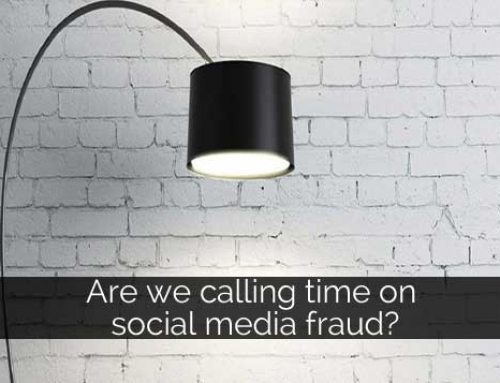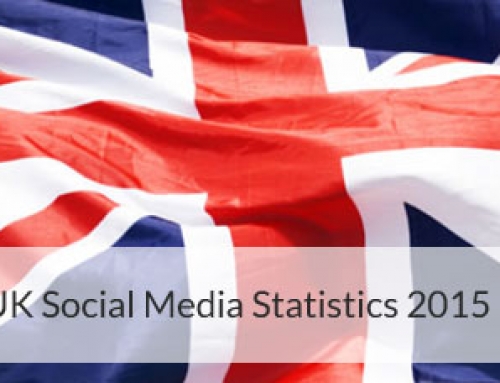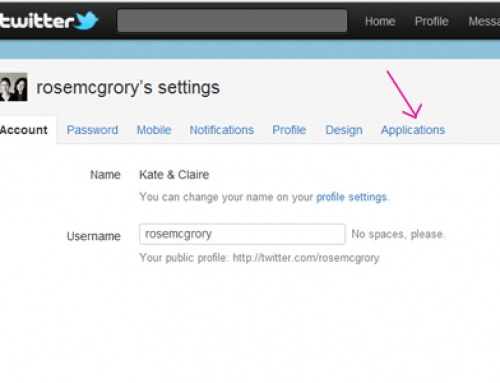This is the second post in our “social media and organisational culture” series – for the introductory post, click here.
This week, we’re going to look at the Fear Factor: those times when, either on an organisational or personal level, the response to any discussion of social media is “Whoaaa hang on there. It’s just far too risky”.
What are organisations scared of?
There are two schools of thought which cause organisations to run away from social media. The first is a complete refusal to engage; often this is because of reading vague but negative media reports, suggesting that posting on Facebook means your house will be burgled, or that Twitter was responsible for the London riots in 2011.
The second is more about concrete concerns: lack of control, loss of reputation, exposure to customers or employees with a (real or imagined) grudge against the organisation. Or to a lesser degree, “getting it wrong”; accidentally posting something inappropriate or negative.
Are you or your senior management running scared?
If those sound familiar, this post is here to help! Let’s look at each of those issues in turn.
Firstly, the “social media is evil” theory. The best cure for this is simply understanding a little about exactly how the main social media sites work, and what choices each individual user is making. For example, Facebook is intended to be used to keep in touch with people you know and trust – that’s why you have to actively accept a friend request before someone new can see what you post there.
If you’ve chosen to accept friend requests either from people you don’t know well, or that you do know but who have criminal tendencies, then it’s a bad idea to put a post up detailing your upcoming month-long absence from home. If that isn’t the case and you get burgled anyway because of something you said on Facebook, then you need to choose your friends more carefully!
Similarly, blaming Twitter for causing riots is essentially the same as blaming the Big Red Telephone to the White House desk for a nuclear war. Holding the transport medium responsible for the message simply doesn’t make sense, and neither does refusing to use it just because someone else uses it for ill. Most companies wouldn’t stop using the postal service just because they get junk mail….
Staying “safe”
That second group of worries are better founded in reality, but even so, avoiding social media is definitely not the cure. Hiding under a blanket won’t make the Big Bad Wolf go away…and the same is true of the Big Bad Social Media wolf.
Yes, every organisation has less control over what’s being said about them, since social media arrived. Yes, reputational damage can happen more easily and faster. And of course it helps if staff have a good understanding of how social media impacts on your communications strategy, and what’s expected of them.
But unfortunately, your customers, suppliers or partners are not going to refrain from discussing you on social media just because you’ve chosen not to have a presence there.
That’s the bottom line with most of these kinds of fears – those discussions may already be happening, but you won’t be aware of them or able to participate…which really doesn’t make the situation better! And you’re also missing out on the ability to identify and engage with people who do love your product or service and want to tell the world about it, as well as all the other benefits that joining the social media realm can bring.
Send in the clowns
Just an additional note on the “haters” fear; that someone with a vendetta and time on their hands will target an organisation’s social media presence. Firstly, this happens much more rarely than most people think. In many years of managing clients’ social media, we’ve had no instances of it happening, and only a handful of incidents where discussion got out of hand and we needed to gently step in. Of course if you’re in certain lines of business (life sciences, arms sales) you may be right to expect trouble, but for the average organisation it’s not an issue.
Secondly, people who are heavy internet users (as most social media users are) learn to identify obsessives and crazies pretty quickly. They’ve seen them before, many times. So just because Mrs Trellis posts ten times on your Facebook page that you stole her favourite biro, that doesn’t mean that anyone will take her seriously. And if you’ve done a good job of building and nurturing your Facebook community, you may well find that they will step in to defend you before you even need to.
You have permission to worry about…
….missing out on the opportunity; and doing a mediocre job because you don’t approach using social media rigorously enough. There may be a risk that you’ll be overtaken by a competitor, and there is certainly a risk that if you don’t manage the basics well, your social media presence could impact negatively on the perception that customers and peers have of your organisation. The good news is though, that these are things which are well within your control, either by allocating resource and knowledge internally, or by getting a little help to set you on the right track.







Leave A Comment